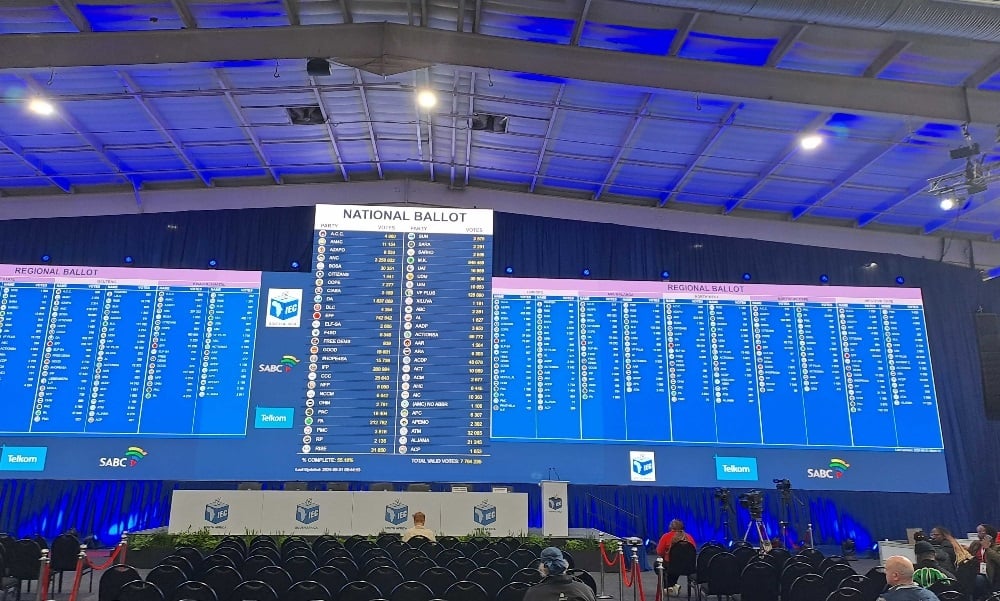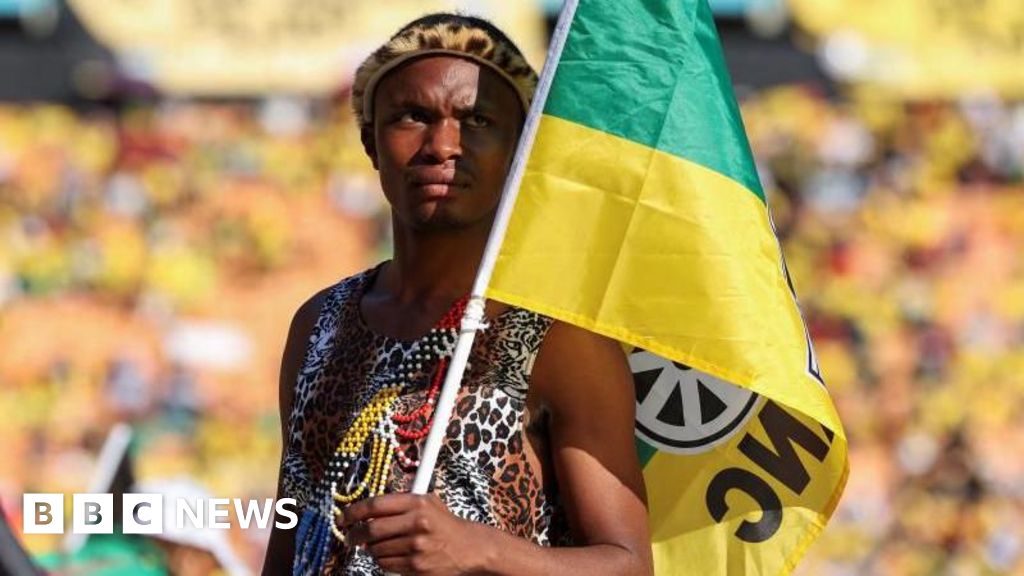
South Africa's 2024 General Elections have shown a significant shift in the political landscape, with the African National Congress (ANC) falling short of a majority and new parties making notable gains. According to official results, as of May 31st, over 7.7 million votes had been captured and verified by the Independent Electoral Commission (IEC), representing approximately 55% of the total votes cast.
The ANC, which has governed South Africa since the end of apartheid in 1994, is projected to receive around 40% of the votes. This marks a significant decline from previous elections and raises questions about its future leadership and governance.
One of the parties making a significant impact on this election is former President Jacob Zuma's Umkhonto weSizwe (MK) Party, which has received 11.3% of the votes. Zuma, who was ousted from the ANC in 2018 over allegations of corruption, has managed to rally support for his new party and challenge the ANC's dominance.
The Democratic Alliance (DA) is currently second with 28.5% of the votes, while other parties such as the Economic Freedom Fighters (EFF), Inkatha Freedom Party (IFP), and Patriotic Alliance have also made notable gains.
In Gauteng, ANC's support stands at 35%, DA at 28.5%, EFF at 12.3%, MK Party at 10.3% and ActionSA at 3%. In KwaZulu-Natal, the MK Party holds a significant lead with 43.9% of the votes, followed by ANC with 18.9%, IFP with 15.4%, DA with 14.8%, and EFF holding only 2.4%. In the Western Cape, DA's support stands at a strong 52.8%, while ANC trails behind at just 20.4%.
The Eastern Cape has seen ANC's support remain high with 65.8%, followed by DA with only 12.4% and EFF with 9.6%. However, the ANC took a massive knock in Mpumalanga, where it stands at just 49.8% of the votes.
The ANC remains in the lead in Limpopo, Free State and North West but its support indicates a slight decline. The IEC results indicate that all votes have been counted and are being verified with 100% likely to be published by Saturday morning.
This election marks a turning point for South African politics, as the ANC's dominance is challenged by new parties and shifting voting patterns. It remains to be seen how this will impact the future of governance in South Africa.

